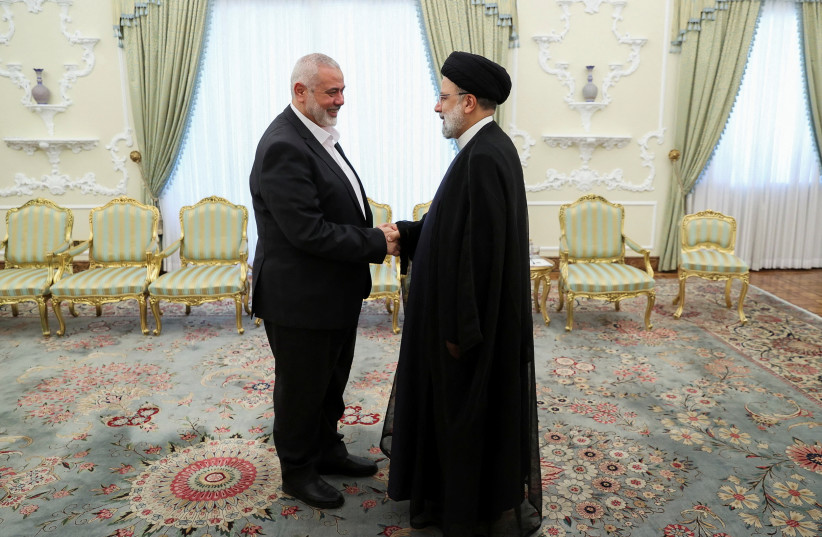Head of Palestinian Islamic Jihad Ziad al-Nakhalah visited Iran over the weekend, where he promised “victory” in the war against Israel. His visit came days after the head of Hamas, Ismail Haniyeh, also flew to Tehran from Doha.
The meetings come at an auspicious time. This is the last week of Ramadan and it also comes on the eve of the six-month anniversary of the October 7 massacre. The visit by these two terrorist bosses is important and it likely foreshadows a new phase of conflict.
In the past when Iran has sought to bring together these groups in meetings, it often represents a larger part of the Iranian war against Israel and against the US and other countries in the region. For instance, in the past, these kinds of meetings have taken place during periods of escalation. These groups have also been meeting more frequently to try to coordinate multiple fronts against Israel. This is the Tehran strategy of “uniting the arenas.”
What we know from the public statements about the PIJ leader’s meetings in Iran is that he discussed the role of his terrorist group with the Iranian foreign minister.
“Amir Abdollahian considered the unity of the resistance in Palestine and the Gaza Strip in the current battle as one of the valuable manifestations of the Palestinian nation,” a report at Tasnim News said. This referenced the accomplishments the Palestinians believe they have gained on the political, legal, and international fronts.
Iran is also hosting its annual World Quds Day this week on April 5. This is the day when Iran’s regime seeks to exploit the Israel-Palestinian conflict and mobilize hatred of Israel. This year it will be important to watch the coming days carefully because Iran may seek escalation before or after this week. Iran is already escalating in Jordan and the West Bank where it is sowing chaos. There is also a potential escalation in Syria and Lebanon.

'Accelerating unity' across Arab nations
Iran believes it has accelerated the “unity” of various fronts after October 7. It wants to leverage October 7 to create more successes in other arenas, such as the West Bank. It also views October 7 as one shot in a larger war for the world order. The article in Tasnim mentioned the desire to “increase multi-layered crises inside the Zionist regime.” It believes that after October 7, Israel is more “isolated than ever.”
PIJ has always been one of the smaller Palestinian terror groups, and it is a full proxy of Iran, unlike Hamas, which is backed by Iran but is not always a proxy.
Israel has tried to clip the wings of PIJ over the last five years, but the group continues to pose a threat.
Nevertheless, it took losses in Gaza recently, losing some of its chain of command in the Second Battle of Shifa, which occurred March 18-31.
Iran believes Israel is achieving tactical accomplishments in Gaza but that PIJ has prevented Israel from achieving its strategic goals. Iran is also pushing PIJ to destabilize more parts of the West Bank. PIJ is the strongest in Jenin.
The PIJ leader claimed in Iran that “the Palestinian nation has will, decision, faith, and courage and will impose its will on the Zionist enemy and its supporters, and we are sure that the final victory over the Zionist enemy is near.”
While in the past, such statements could be seen as boasting, the fact is that after October 7, these terror groups have shown they can carry through with some threats.
PIJ members were seen in Gaza in late November during the first hostage deal. The group works closely with Hamas, which is why its members migrated back to Shifa in January and February 2024, only to be caught by the IDF.
Now Iran is plotting the next step with PIJ and Hamas.
